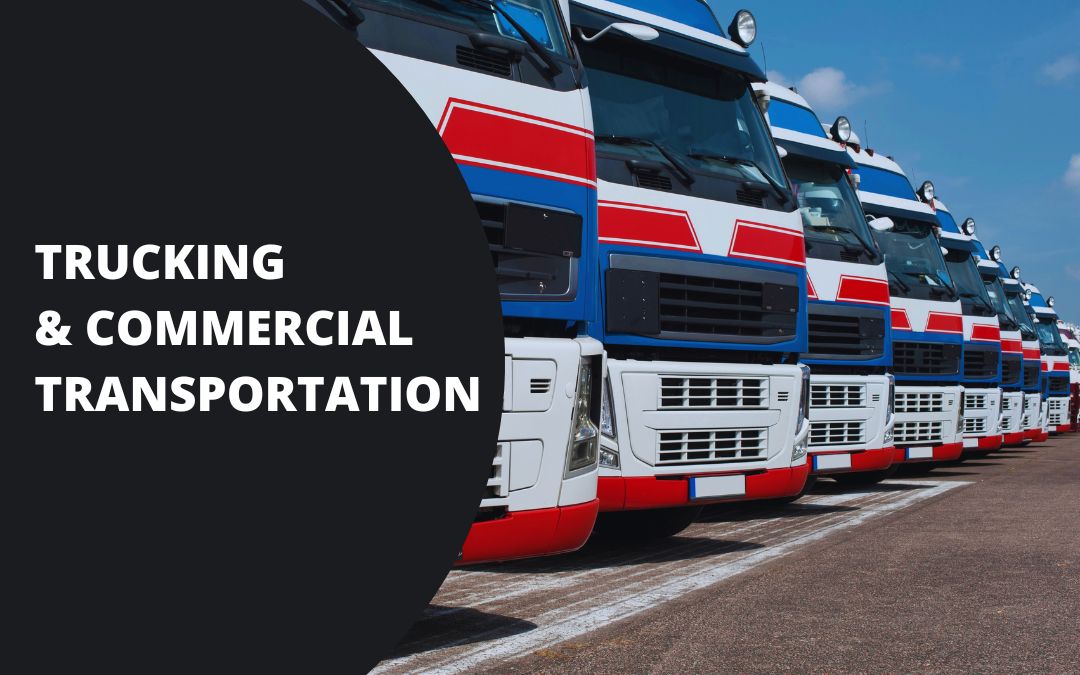
Frequently Asked Questions (FAQs) For Trucking & Commercial Transportation
Do I need a special license to drive a commercial truck?
Yes, operating a commercial truck requires a Commercial Driver’s License (CDL) beyond a standard driver’s license. Depending on the vehicle’s weight and type of cargo, specific endorsements may be needed (e.g., hazardous materials). Each state has its own CDL requirements and testing procedures, so be sure to check your local regulations.
This article is for general informational purposes only and is not legal advice. Contact us today to discuss your specific situation.
What are the Federal Hours of Service (HOS) regulations for truck drivers?
HOS regulations dictate how long truck drivers can work without rest to ensure safety. The current rules involve a 14-hour window within which drivers can operate, with mandatory breaks and limitations on driving time after certain periods of on-duty status. Understanding and complying with HOS rules is essential to avoid fines and potential accidents.
This article is for general informational purposes only and is not legal advice. Contact us today to discuss your specific situation.
Who is liable for cargo damage during transportation?
Liability for cargo damage depends on the terms of the bill of lading, a shipping document establishing the carrier’s and shipper’s rights and responsibilities. Generally, the carrier is liable for damage unless caused by an “act of God”, inherent vice of the goods, or shipper negligence. However, insurance policies and specific contract terms can further influence liability.
This article is for general informational purposes only and is not legal advice. Contact us today to discuss your specific situation.
What regulations govern the safe loading and securing of cargo?
Federal Motor Carrier Safety Administration (FMCSA) regulations dictate how cargo must be loaded, secured, and distributed on commercial vehicles. These regulations aim to prevent shifting cargo from causing accidents and ensure driver safety. Proper securement practices like tie-downs, blocking and bracing, and weight distribution are vital to comply with these regulations.
This article is for general informational purposes only and is not legal advice. Contact us today to discuss your specific situation.
What happens if I get into a truck accident?
Following a truck accident, immediate actions include ensuring everyone’s safety, contacting emergency services, exchanging information with other parties involved, and documenting the scene. Reporting the accident to the FMCSA and your insurance company is also crucial. Consulting a qualified trucking attorney experienced in accident investigations and litigation can protect your rights and navigate the legal process effectively.
This article is for general informational purposes only and is not legal advice. Contact us today to discuss your specific situation.
What are my rights as a truck driver who has been unfairly treated by my employer?
Truck drivers have specific rights under federal and state laws regarding hours of service, wages and overtime, meal and rest breaks, and discrimination. If you believe your employer has violated these rights, you may be entitled to compensation or other remedies. Seeking legal counsel from an attorney specializing in labor and employment law can help you understand your options and pursue those rights.
This article is for general informational purposes only and is not legal advice. Contact us today to discuss your specific situation.
What permits do I need to operate my trucking business?
Trucking businesses require various permits and licenses depending on the type of operations, routes, and cargo. Common permits include operating authorities, International Fuel Tax Agreement (IFTA) credentials, and specific state permits for heavy vehicles or hazardous materials transportation. Consulting with a transportation lawyer can ensure you obtain the necessary permits for legal and compliant operations.
This article is for general informational purposes only and is not legal advice. Contact us today to discuss your specific situation.
What insurance coverage is required for commercial trucks?
Commercial truck insurance is mandatory, often with minimum liability coverage requirements exceeding private vehicle insurance. Additional coverage options for cargo, physical damage, and specific cargo types like hazardous materials may be necessary. Consulting with an insurance agent experienced in commercial transportation can help you determine the appropriate coverage levels and types for your business.
This article is for general informational purposes only and is not legal advice. Contact us today to discuss your specific situation.
What are the legal consequences of violating trucking regulations?
Violations of trucking regulations can result in various penalties, including fines, safety citations, out-of-service orders, and even license suspension or revocation. Repeated or severe violations can also lead to criminal charges. Understanding the regulations and taking steps to comply is crucial to avoid these consequences.
This article is for general informational purposes only and is not legal advice. Contact us today to discuss your specific situation.
When should I consult a trucking and transportation lawyer?
Seeking legal counsel is advisable in various situations within the trucking industry. If you face a truck accident, employment issues, regulatory compliance concerns, contract disputes, or any other legal matter related to trucking and transportation, consulting a qualified attorney can provide invaluable guidance, protect your rights, and represent your interests effectively.
This article is for general informational purposes only and is not legal advice. Contact us today to discuss your specific situation.
